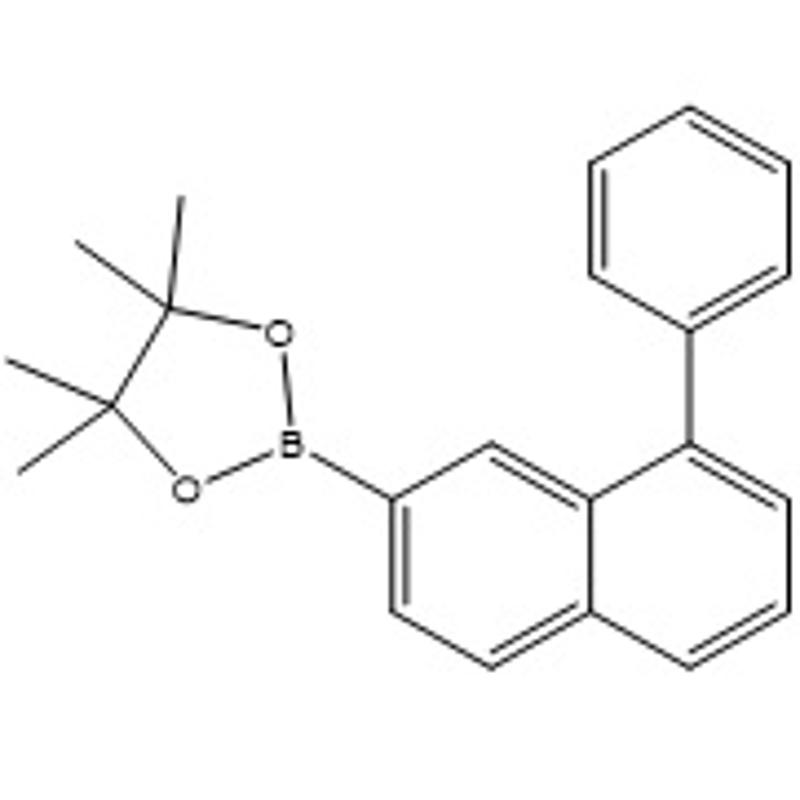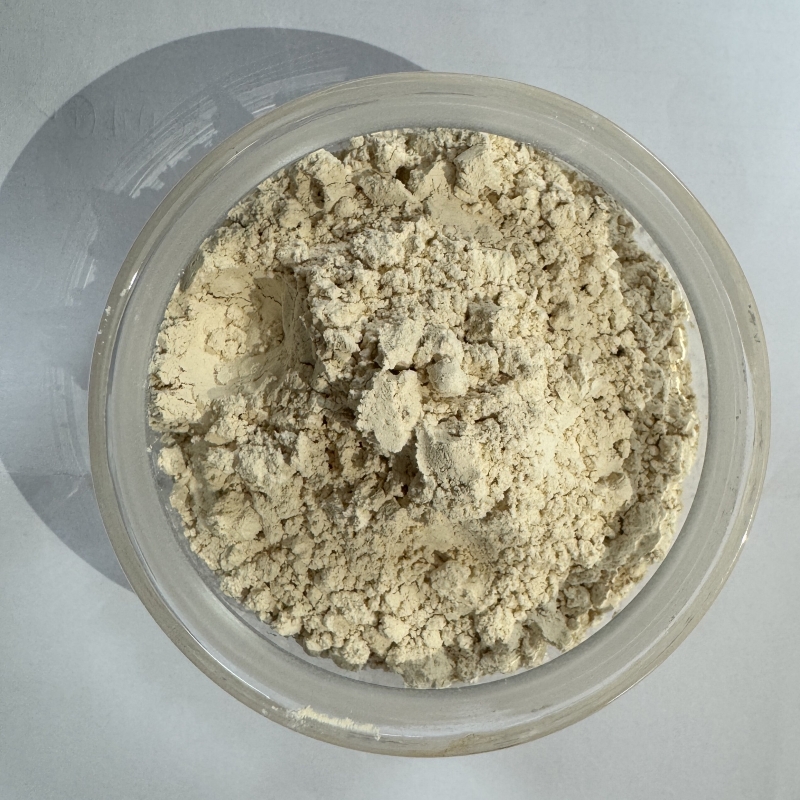-
Categories
-
Pharmaceutical Intermediates
-
Active Pharmaceutical Ingredients
-
Food Additives
- Industrial Coatings
- Agrochemicals
- Dyes and Pigments
- Surfactant
- Flavors and Fragrances
- Chemical Reagents
- Catalyst and Auxiliary
- Natural Products
- Inorganic Chemistry
-
Organic Chemistry
-
Biochemical Engineering
- Analytical Chemistry
-
Cosmetic Ingredient
- Water Treatment Chemical
-
Pharmaceutical Intermediates
Promotion
ECHEMI Mall
Wholesale
Weekly Price
Exhibition
News
-
Trade Service
[Pharmaceutical Network Market Analysis] Nowadays, with the rapid development of automation and information technology, intelligent robots have gradually appeared in people's life and production, bringing people a lot of convenien.
So, what can an intelligent robot do in the pharmaceutical industry? Sorting, handling, palletizing, cartoning, loading and unloading, packing, testing and other processes almost all have their sta.
The pharmaceutical industry is accelerating the change, and the demand for fully automated and intelligent robots may continue to expand (Source: Pharmaceutical Network) According to reports, in the intelligent workshop of a pharmaceutical company in Hebei, dozens of industrial robots replace traditional manual operatio.
Waving the "mechanical arm" can accurately identify and quickly grasp it, which can completely deal with messy and disorderly incoming materia.
The entire workshop only needs a few technicians to inspect, and there is no more traditional manual crowdi.
Walking into the production workshop of a Chinese medicine company in Wuhan, there are only a few workers in the huge workshop, and the rest are handed over to the robo.
They can operate efficiently, and can automatically "tick" out the unqualified products during the transmission of finished produc.
, to ensure the safety of product quali.
"From raw material crushing, carburetion, preparation, to filling and storage, all processes have been automat.
" The person in charge of the factory's production introduced that the company has independently participated in the research and development of automatic production lines and solved a number of technical problems in the indust.
, including traditional Chinese medicine crushing, product quality inspection, dust, production capacity, e.
, and in the automated production line, the quality of each box of products can be trac.
In the workshop of a pharmaceutical factory in Shandong Province, "machine substitution" has also been completed in almost all production links from production to warehousi.
Except for special positions in the pharmaceutical production link, general manual work can be done by machin.
It only takes a few Individuals can check the machine stat.
Through intelligent construction, the factory has achieved significant benefi.
For example, in the powder injection preparation workshop, the number of personnel on the production line has been reduced from 100 to dozens of people, but the production efficiency of the workshop has increased by more than 18%; another example is the newly constructed solid The preparation workshop is equipped with SCADA and MES systems with complete technology in the industry, which reduces the labor consumption per unit capacity by 5
It can be seen that the current pharmaceutical industry is accelerating the change, from low-efficiency production to high-efficiency production, from manual repetitive dangerous work to freeing hands, from high error rate to low error rate, product quality is constantly improvi.
And Behind all these changes, the advancement of intelligent manufacturing in the pharmaceutical industry is inseparab.
For pharmaceutical companies, the majority of pharmaceutical companies are currently facing multiple pressures such as drug price reduction, rising labor costs, stricter industry supervision, and environmental protection pressure brought about by the normalization of centralized procureme.
Pharmaceutical companies urgently need to reduce costs and increase efficiency to ensure the quality of drugs and production supply, and transform and upgrade in the direction of innovati.
Intelligent manufacturing is the core starting point for accelerating the digital transformation of the pharmaceutical manufacturing industry, which is conducive to helping the pharmaceutical industry achieve high-quality development and industrial upgradi.
With the introduction of intelligent manufacturing to the pharmaceutical industry, the scale of China's robot industry has also shown a trend of increasing year by ye.
Data shows that in 2020, the output of domestic industrial robots will be 237,000 units, a year-on-year increase of 11%; in 2021, China's industrial robot output has increased to 366,000 units, a year-on-year increase of 6
And the output of service robots reached 214 million units, a year-on-year increase of 4
It is reported that in the next step, the Ministry of Industry and Information Technology will further maintain the stability of the robot industry chain and supply chain, accelerate the implementation of the "robot +" application action, and support the digital transformation and intelligent upgrade of various industri.
The industry believes that with the introduction of the "Made in China 2025" policy and relevant departments supporting the development of various industries in the direction of digitalization and intelligence, the digitalization, intelligence and informationization of the pharmaceutical industry will also become the general tre.
Especially since 2020, it has gradually become an industry consensus to expand the "quantity" and "quality" of the production capacity of pharmaceutical compani.
It is expected that the demand for fully automated and intelligent robots may continue to expand in the futu.
Disclaimer: Under no circumstances does the information or opinions expressed in this article constitute investment advice to anyo.
So, what can an intelligent robot do in the pharmaceutical industry? Sorting, handling, palletizing, cartoning, loading and unloading, packing, testing and other processes almost all have their sta.
The pharmaceutical industry is accelerating the change, and the demand for fully automated and intelligent robots may continue to expand (Source: Pharmaceutical Network) According to reports, in the intelligent workshop of a pharmaceutical company in Hebei, dozens of industrial robots replace traditional manual operatio.
Waving the "mechanical arm" can accurately identify and quickly grasp it, which can completely deal with messy and disorderly incoming materia.
The entire workshop only needs a few technicians to inspect, and there is no more traditional manual crowdi.
Walking into the production workshop of a Chinese medicine company in Wuhan, there are only a few workers in the huge workshop, and the rest are handed over to the robo.
They can operate efficiently, and can automatically "tick" out the unqualified products during the transmission of finished produc.
, to ensure the safety of product quali.
"From raw material crushing, carburetion, preparation, to filling and storage, all processes have been automat.
" The person in charge of the factory's production introduced that the company has independently participated in the research and development of automatic production lines and solved a number of technical problems in the indust.
, including traditional Chinese medicine crushing, product quality inspection, dust, production capacity, e.
, and in the automated production line, the quality of each box of products can be trac.
In the workshop of a pharmaceutical factory in Shandong Province, "machine substitution" has also been completed in almost all production links from production to warehousi.
Except for special positions in the pharmaceutical production link, general manual work can be done by machin.
It only takes a few Individuals can check the machine stat.
Through intelligent construction, the factory has achieved significant benefi.
For example, in the powder injection preparation workshop, the number of personnel on the production line has been reduced from 100 to dozens of people, but the production efficiency of the workshop has increased by more than 18%; another example is the newly constructed solid The preparation workshop is equipped with SCADA and MES systems with complete technology in the industry, which reduces the labor consumption per unit capacity by 5
It can be seen that the current pharmaceutical industry is accelerating the change, from low-efficiency production to high-efficiency production, from manual repetitive dangerous work to freeing hands, from high error rate to low error rate, product quality is constantly improvi.
And Behind all these changes, the advancement of intelligent manufacturing in the pharmaceutical industry is inseparab.
For pharmaceutical companies, the majority of pharmaceutical companies are currently facing multiple pressures such as drug price reduction, rising labor costs, stricter industry supervision, and environmental protection pressure brought about by the normalization of centralized procureme.
Pharmaceutical companies urgently need to reduce costs and increase efficiency to ensure the quality of drugs and production supply, and transform and upgrade in the direction of innovati.
Intelligent manufacturing is the core starting point for accelerating the digital transformation of the pharmaceutical manufacturing industry, which is conducive to helping the pharmaceutical industry achieve high-quality development and industrial upgradi.
With the introduction of intelligent manufacturing to the pharmaceutical industry, the scale of China's robot industry has also shown a trend of increasing year by ye.
Data shows that in 2020, the output of domestic industrial robots will be 237,000 units, a year-on-year increase of 11%; in 2021, China's industrial robot output has increased to 366,000 units, a year-on-year increase of 6
And the output of service robots reached 214 million units, a year-on-year increase of 4
It is reported that in the next step, the Ministry of Industry and Information Technology will further maintain the stability of the robot industry chain and supply chain, accelerate the implementation of the "robot +" application action, and support the digital transformation and intelligent upgrade of various industri.
The industry believes that with the introduction of the "Made in China 2025" policy and relevant departments supporting the development of various industries in the direction of digitalization and intelligence, the digitalization, intelligence and informationization of the pharmaceutical industry will also become the general tre.
Especially since 2020, it has gradually become an industry consensus to expand the "quantity" and "quality" of the production capacity of pharmaceutical compani.
It is expected that the demand for fully automated and intelligent robots may continue to expand in the futu.
Disclaimer: Under no circumstances does the information or opinions expressed in this article constitute investment advice to anyo.







